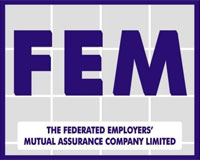According to the latest statistics from Federated Employers Mutual Assurance (FEM), the agency that provides workmen's compensation for the construction industry, there has been a steady decline in the number of accidents over the past three years.
"Although the number of accidents has gone down, there has been a dramatic increase in the average cost of an accident," says Deon Bester, occupational health and safety manager for the Master Builders Association of the Western Cape (MBAWC).
In 2010 the average cost of an accident was R11 961; however this increased to R21 857 per accident in 2011. This constitutes almost a 100% increase within a year and equates to between four and five people being injured and requiring medical attention per hour. While the direct cost related to these injuries is R804 338 every day there are also substantial indirect costs associated. These include loss of time, lapses in productivity, re-employment, retraining and the potential damage to a company's reputation.
Construction sites are organised chaos
The construction industry currently has almost five unplanned events per hour at a cost of R21 857 each. While these are unplanned they can also be prevented through better forecasting. Before the work even begins contractors need to assess the site and evaluate the potential risks and hazards involved. They will also need to determine whether or not the hazard can be removed, if the risk can be controlled and what protective measures must be put in place to protect the workforce as a whole.
Most construction sites are, by their very nature, organised chaos so it is imperative that the crew knows what the plan is for the day. Not only does this help workers to keep out of each other's way, it also gives everyone a clearer picture of what is expected of them. Effective communication is paramount to getting vital information across to the workforce, yet there is a tendency to make assumptions about the knowledge and ability of staff.
Supervisors must be trained
Employers need to make an effort to understand their workforce and provide them with information that is not only in a language that they understand but is also relevant to them. This can be done by holding short, ten minute meetings each day where safety and other information pertinent to the day can be passed on to the staff and where discussions on recent accidents, as well as ways to prevent similar incidents can take place.
Inadequate training can also result in supervisors not understanding their role. They are responsible for the safety of the workers under them and should act as a coach and mentor to ensure that safety practices are upheld such as wearing protective gear. Insufficient supervision is another major contributing factor to accidents. To ensure more effective supervision, an idea might be to designate one person in each work area to act as the safety coordinator for that section to enforce safety rules on site and be accountable for the actions of the crew.



























